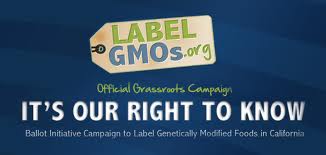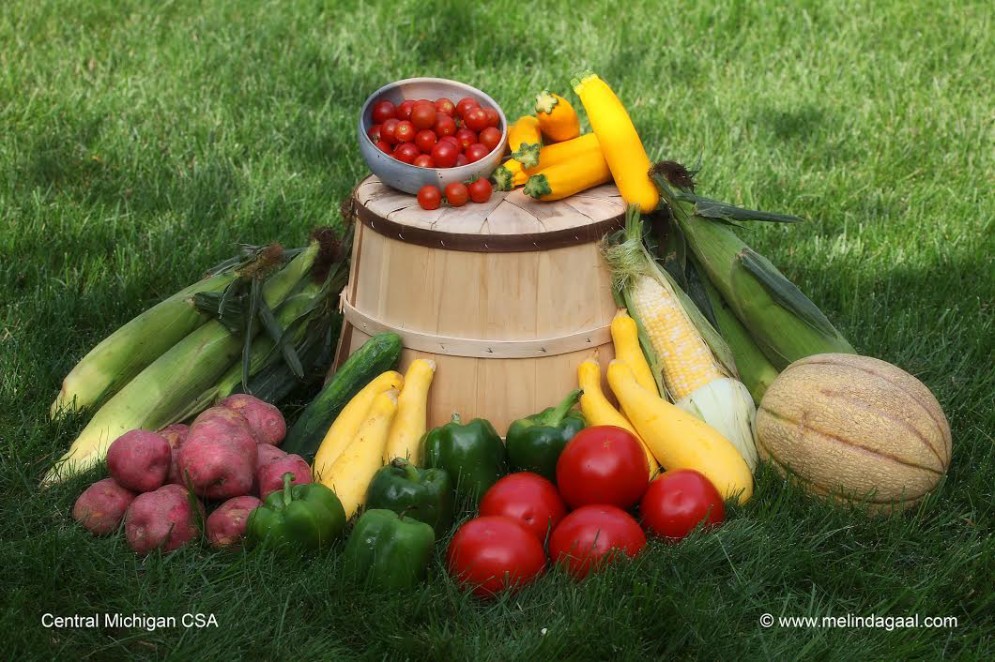 I’m a produce farmer in Central Michigan and provide food to the surrounding community through a successful farm market and Mid Michigan CSA program. I grow here on our family farm that was a cow/calf beef farm for over 30 years. I use natural growing techniques and implement some newer technologies to lower the need for pesticides, herbicides and fungicides like using plastic mulch and watering with drip lines. I don’t seek out genetically engineer seeds or GMO’s at least not the popular ones among large scale farmers like round up ready seeds and such. The extent of my participation is using seeds that have disease resistance built in from cross pollinating and hybrid varieties that can be accomplished from saving seeds from healthy plants. In some ways saving seeds from heirloom plants that produce healthy plants as well as fruit is a safe way to modify our crops. But I don’t consider it GMO at all. I don’t have a lab and it’s a practice as old as farming itself.
I’m a produce farmer in Central Michigan and provide food to the surrounding community through a successful farm market and Mid Michigan CSA program. I grow here on our family farm that was a cow/calf beef farm for over 30 years. I use natural growing techniques and implement some newer technologies to lower the need for pesticides, herbicides and fungicides like using plastic mulch and watering with drip lines. I don’t seek out genetically engineer seeds or GMO’s at least not the popular ones among large scale farmers like round up ready seeds and such. The extent of my participation is using seeds that have disease resistance built in from cross pollinating and hybrid varieties that can be accomplished from saving seeds from healthy plants. In some ways saving seeds from heirloom plants that produce healthy plants as well as fruit is a safe way to modify our crops. But I don’t consider it GMO at all. I don’t have a lab and it’s a practice as old as farming itself.
My View on GMO’s and GE Foods
My biggest beef with the whole genetically engineered and GMO issue is that this stuff was woven thoughout our foods via soybean and corn GMO’s before there even seemed to be a public debate or conversation for that matter. I think that has left a lot of folks (including myself) feeling a bit betrayed and extremely uneasy. That said, I don’t live in the City. I don’t get much food from grocery stores either. We grow our own vegetables, fruit, beef, pork, etc. and I usually only buy things like cereal,milk, bread and eggs. I’m also in the process of eliminating those things as well with about 100 laying hens on the way and a bread maker. Not sure on the milk thing but I’ll figure it out. I do feel bad for the people who choose not to grow and produce their own food or lack access to these foods, If I were one of them I would be out raged, and many are. I talked with a lady the other day who did some shopping at a organic whole food store and when she arrived back home and looked through her products she found many (most) were riddled with GMO’s via soybeans, corn, or high fructose corn syrup.
Will Labeling The GMO’s Destroy the Local Farm Market?
This question is valid and if you think that large companies that stand to gain from GMO’s have been deceptive and are actually as powerful as some say, then this is the most important question of the debate. I’m concerned that the increasing volume of the “JUST LABEL IT” movement will result in another “stinky” law that leaves the responsibility on small produce farmers like me.
How do I know if the seeds,plants, or produce I grow and sell is contaminated with genetically engineered material? Seriously.
I’ve never purchased one seed that was advertised or labelled GMO or GE but then labeling isn’t required, right? Will grower’s have to get all there food tested in order to accurately label it? That is what is happening now with those who process food and make things like salsa, tomatoes sauces and more. Will we be next? Or will the responsibility fall on the seed suppliers? Again these are all fair questions. Will the law (if there is one) require those who reap the profits of these GMO’s and their creators to foot the financial aspect of a successful labelling initiative?
Uncommon Sense
Wouldn’t it make more sense to establish the health risks and long term risks to the environment and just stop injecting these products into our food supply once and for all if they indeed are unsustainable or flat our bad for our health? Isn’t this like labeling cigarette’s? Don’t get me wrong, I think it is outrageous that these GMO’s weren’t labeled in the first place fear we are fighting the wrong battle or having the wrong conversation. It just seems like common sense. What are your thoughts on this?

